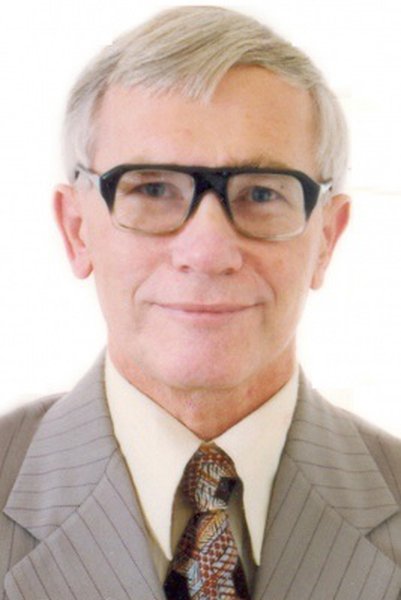professor
Doctor of Physical and Mathematical Sciences
professor
611
521-33-45
logical-mathematical means of program specifications, mathematical logic

Doctor of Physical and Mathematical Sciences
professor
611
521-33-45
logical-mathematical means of program specifications, mathematical logic
He graduated with honors from the Faculty of Cybernetics of Kyiv University in 1973. Has been working at the university since 1973. In 1979, under the leadership of V.N. Redko defended his dissertation on “Research of the syntactic structure of programming languages.” He has been an associate professor of the department since 1983, and received the scientific title of associate professor in 1987. In 2010 he defended his doctoral dissertation on “The range of logic of partial predicates focused on compositional-nominative models of programs” in the specialty 01.05.01 – Theoretical Foundations of Informatics and Cybernetics.
He studied the syntactic structure of programming languages, the study of program algebras and logics. In collaboration with prof. M.S. Nikitchenko, on the basis of a compositional-nominative approach common to logic and programming, constructed a wide range of program-oriented logical formalisms at different levels of abstraction and generality. Languages are described and the semantic properties of compositional-nominative logics of the corresponding level are investigated. Neoclassical logics, which are close to the classical logic of predicates and preserve its basic laws, are identified and studied, at the same time these logics have greater expressive possibilities and significantly wider classes of semantic models. For compositional-nominative logics of different levels, formal-axiomatic systems of Hilbert and sequential type are constructed and investigated, their correctness and completeness are proved. The compositional-nominative logics of partial unambiguous, total ambiguous and partial ambiguous quasi-predicates are investigated. Different semantics and different formalizations of the relation of logical consequence are offered for them, the calculus of sequential type is constructed. A number of the obtained results are generalizations of known statements of classical logic. The research results are used in the development of information and software systems, in particular, systems of specification and verification of programs.
Mathematical logic
Theory of algorithms